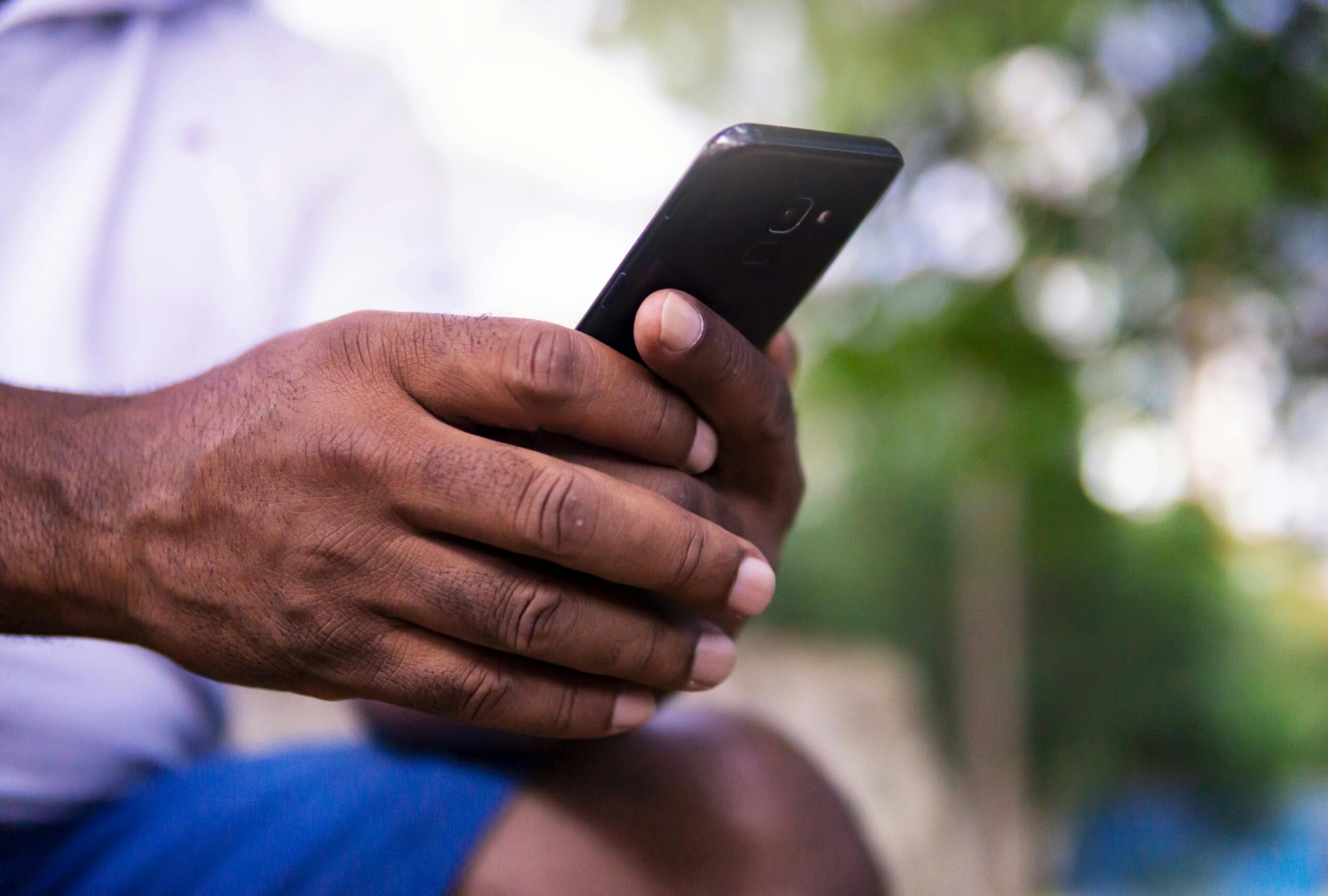The unilateral decision to compel social media companies to work with charities on harmful content has not been subjected to the necessary scrutiny, believes tech policy expert Heather Burns
Credit: Dominic Lipinski/PA Wire/PA Images
In a move which raises questions about government attempts to bypass consultative scrutiny, the health secretary Matt Hancock has announced the appointment of the Samaritans as the private regulator to define and evaluate online harms, despite the government’s white paper on online harms, and its regulatory structure, still being open for consultation.
The announcement was the result of previously announced talks held in Whitehall with representatives from Facebook, Instagram, Twitter, Pinterest, and Google. Wikipedia was also summoned to attend, despite being neither a social media platform nor a private company with employees, and thus having no one capable of attending.
Reports indicate that the social media companies in attendance have been compelled to contribute several hundreds of thousands of pounds in research funding to the Samaritans, the suicide-prevention charity.
These funds will enable them to develop an online-harms equivalent of its well-known guidelines for the media on the reporting of suicide. The eating disorder charity Beat will be tapped in a similar role for pro-anorexia and -bulimia material. Social media companies, in turn, will be expected to adopt the ensuing codes in their terms of service as part of their “duty of care” to users.
The announcement of the Samaritans initiative was made in the context of the government’s focus on online harms, specifically its white paper laying out the model for the proposed definitions of online harms, the scope of the proposed duty of care, and the identity and structure of the proposed independent regulator.
The white paper, however, remains open for consultation until 1 July.
In parliament on Tuesday, Matt Hancock noted that “compliance with this duty of care will be overseen and enforced by an independent regulator, which will be responsible for producing codes of practice that will explain what companies need to do to fulfil their duty, and the robust action they need to take to remove illegal or harmful content”.
Yet speaking in the Telegraph, Hancock (pictured above) said: “we have an independent body like the Samaritans that are funded to be able to be arbiter of what should and shouldn’t be taken down”.
This is a very different line to the one delivered in parliament.
While nothing proposed in the white paper has been decided or finalised, the Samaritans’ role has been announced as if the consultation is closed, the definitions are finalised, the regulator is operative, and the duty of care is law.
These unilateral decisions on the regulation of online harms are neither consultative nor open to public scrutiny. Furthermore, another open consultation dealing directly with children’s use of the internet – ICO’s draft code of practice on age-appropriate design – was not even mentioned, despite being directly relevant to the prevention of online harms as well as social media companies’ role in managing them.
In announcing a private charity as the judge and jury of online harms, the health secretary has, effectively, bypassed both the white paper consultation and the rule of law, hiding behind ‘won’t someone think of the children?’ to do so.
A questionable track record
The Samaritans have been tapped as the arbiter of online harms despite having a questionable track record. The charity, for all its good works and intentions, was responsible for one of the most notorious experiments in failed online moderation of suicidal behavior.
Its Samaritans Radar app, launched in 2014, scanned Twitter for phrases which could indicate suicidal ideation such as “help me”. The app then sent an email to the users’ friends indicating that they might be in need of help. In theory, Samaritans Radar would leverage the power of social media to create a safety net for the vulnerable. In practice, the app infringed personal privacy, scanned conversations without user consent, made potentially catastrophic judgements based on artificial intelligence, and handed a gift to bullies and trolls seeking vulnerable people to attack. The app was pulled after just nine days of existence.
Yet five years later, an offer to create automated solutions based on proactive monitoring, potentially flawed artificial intelligence, and intrusive intervention is just what the health secretary ordered.
Finally, the announcement of the Samaritans’ role in domestic tech regulation by Hancock also raises the intriguing question of why the former DCMS minister effectively continues in post despite having left that brief in January 2018.
While the health secretary’s love of all things technical and gadgety is as notorious as the current postholders’ distaste for them, the complete absence of the ministers for DCMS, Jeremy Wright, and digital, Margot James, from a public announcement about tech sector regulation raises questions about their commitment to their portfolios.




3TB Only Fans Mega
Caaart OnlyFans Mega Link Download
Ima Cri Baby OnlyFans Mega Link Download ( Visit https://archiver.fans )
Buy Leaked Only Fans ( Visit https://archiver.fans )
Bulma XO OnlyFans Mega Link Download
Lexi 2 Legit OnlyFans Mega Link Download
Mega Link Shop ( Visit https://archiver.fans )
Buy Mega Links ( Visit https://archiver.fans )
Buy Only Fans Leaks ( Visit https://archiver.fans )
8TB Only Fans Mega ( Visit https://archiver.fans )
Genesis Mia Lopez OnlyFans Mega Link Download
Jenise Hart OnlyFans Mega Link Download
Itz Grippy TV OnlyFans Mega Link Download ( Visit https://archiver.fans )
Ima Cri Baby OnlyFans Mega Link Download ( Visit https://archiver.fans )
GG With The WAP OnlyFans Mega Link Download
Mega Link Shop ( Visit https://archiver.fans )
Its Lunar Liv OnlyFans Mega Link Download
Buy Mega Links ( Visit https://archiver.fans )
Black Ass Jenny OnlyFans Mega Link Download
Mulan Hernandez OnlyFans Mega Link Download ( Visit https://archiver.fans )
North Natt OnlyFans Mega Link Download
10TB Only Fans Mega ( Visit https://archiver.fans )
Caaart OnlyFans Mega Link Download
Caaart OnlyFans Mega Link Download
Buy Mega Links ( Visit https://archiver.fans )
Mikaila Dancer OnlyFans Mega Link Download
Corinna Kopf OnlyFans Mega Link Download ( Visit https://archiver.fans )
Rubi Rose OnlyFans Mega Link Download
Barely Legal Lexi OnlyFans Mega Link Download
GG With The WAP OnlyFans Mega Link Download
Barely Legal Lexi OnlyFans Mega Link Download
Emmanuel Lustin OnlyFans Mega Link Download ( Visit https://archiver.fans )
Rubi Rose OnlyFans Mega Link Download
Gina WAP OnlyFans Mega Link Download ( Visit https://archiver.fans )
Buy Fansly Leaks ( Visit https://archiver.fans )
Hola Bulma OnlyFans Mega Link Download ( Visit https://archiver.fans )
North Natt OnlyFans Mega Link Download
Hola Bulma OnlyFans Mega Link Download ( Visit https://archiver.fans )
3TB Only Fans Mega
Hola Bulma OnlyFans Mega Link Download ( Visit https://archiver.fans )
GG With The WAP OnlyFans Mega Link Download
Rubi Rose OnlyFans Mega Link Download
Only Fans Leaks Free Download
Buy Fansly Leaks ( Visit https://archiver.fans )
Updated Only Fans Leaks ( Visit https://archiver.fans )
Mikaila Dancer OnlyFans Mega Link Download
Leah Mifsud OnlyFans Mega Link Download ( Visit https://archiver.fans )
Bulma XO OnlyFans Mega Link Download
Yasmine Lopez OnlyFans Mega Link Download ( Visit https://archiver.fans )
Barely Legal Lexi OnlyFans Mega Link Download
Gina WAP OnlyFans Mega Link Download ( Visit https://archiver.fans )
Buy Leaked Only Fans ( Visit https://archiver.fans )
Barely Legal Lexi OnlyFans Mega Link Download
Barely Legal Lexi OnlyFans Mega Link Download
Bulma XO OnlyFans Mega Link Download
TheRealRebeccaJ OnlyFans Mega Link Download
Buy Leaked Content ( Visit https://archiver.fans )
3TB Only Fans Mega
Updated Only Fans Leaks ( Visit https://archiver.fans )
Rebecca J OnlyFans Mega Link Download ( Visit https://archiver.fans )
Only Fans Leaks Updates
Black Ass Jenny OnlyFans Mega Link Download
Crii Baby RiRi OnlyFans Mega Link Download ( Visit https://archiver.fans )
Fansly Leaks Mega Link
Barely Legal Lexi OnlyFans Mega Link Download
Yasmine Lopez OnlyFans Mega Link Download ( Visit https://archiver.fans )
Ima Cri Baby OnlyFans Mega Link Download ( Visit https://archiver.fans )
10TB Only Fans Mega ( Visit https://archiver.fans )
Corinna Kopf OnlyFans Mega Link Download ( Visit https://archiver.fans )
Updated Only Fans Leaks ( Visit https://archiver.fans )
Rubi Rose OnlyFans Mega Link Download
3TB Only Fans Mega
GG With The WAP OnlyFans Mega Link Download
Yasmine Lopez OnlyFans Mega Link Download ( Visit https://archiver.fans )
Mikaila Dancer OnlyFans Mega Link Download
Mulan Hernandez OnlyFans Mega Link Download ( Visit https://archiver.fans )
Updated Only Fans Leaks ( Visit https://archiver.fans )
8TB Only Fans Mega ( Visit https://archiver.fans )
Mikaila Dancer OnlyFans Mega Link Download
Mega Link Store
Free Only Fans Leaks ( Visit https://archiver.fans )
Buy Leaked Only Fans ( Visit https://archiver.fans )
Mikaila Dancer OnlyFans Mega Link Download
10TB Only Fans Mega ( Visit https://archiver.fans )
Gina WAP OnlyFans Mega Link Download ( Visit https://archiver.fans )
Ima Cri Baby OnlyFans Mega Link Download ( Visit https://archiver.fans )
Buy Mega Links ( Visit https://archiver.fans )
Corinna Kopf OnlyFans Mega Link Download ( Visit https://archiver.fans )
Buy Only Fans Leaks ( Visit https://archiver.fans )
Its Lunar Liv OnlyFans Mega Link Download
Yasmine Lopez OnlyFans Mega Link Download ( Visit https://archiver.fans )
Sophie Raiin OnlyFans Leaks Mega Folder Link Download
Bombshell Mint Nude Leaks ( https://CrocSpot.Fun )
GinaWAP Only Fans PPVS Download https://urbancrocspot.org/tag/gg-with-the-wap/
GGWithDaWAP Only Fans Leaks https://urbancrocspot.org/tag/gg-with-the-wap/
DellyTheDream OnlyFans Leaks Mega Folder Link Download ( https://UrbanCrocSpot.org )
The Real Bombshell Mint Only Fans Leaks ( https://UrbanCrocSpot.org/ )
GinaWAP Mega Folder Link https://urbancrocspot.org/product-tag/gg-with-the-wap/
CocoFantasia OnlyFans Leaks Mega Folder Link Download ( https://UrbanCrocSpot.org )
Arabelle Raphael OnlyFans Leaks Mega Folder Link Download
The Real Bombshell Mint ( https://urbancrocspot.org/the-real-bombshell-mint-only-fans-mega-link/ )
GGWithTheWAP Only Fans PPVs ( https://urbancrocspot.org/gina-wap-gg-with-the-wap-only-fans-mega-link-9gb/ )
Tytiania Sargent Porn ( https://UrbanCrocSpot.org/shop )
GinaWAP Mega Folder Link https://urbancrocspot.org/product-tag/gg-with-the-wap/
FoxyBrown20 OnlyFans Leaks Mega Folder Link Download ( https://Archiver.Fans )
Sage Dovina OnlyFans Leaks Mega Folder Link Download